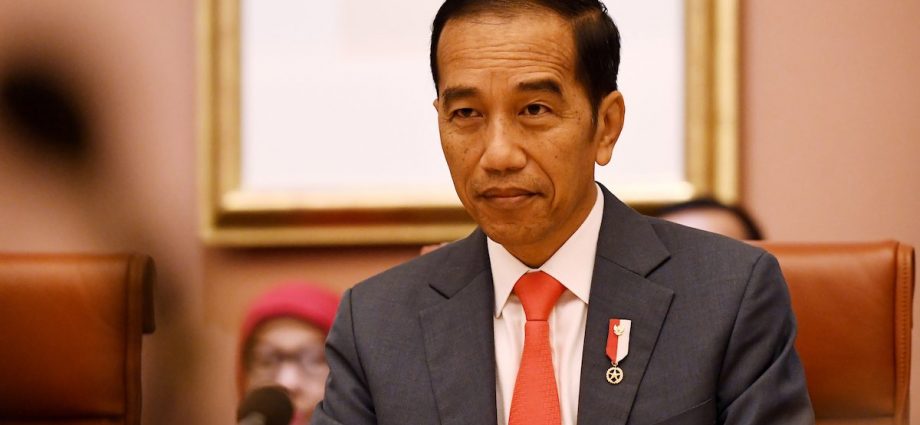
Last month, the Indonesian government made a firm commitment to the United Nations to improve the human-rights situation in the country.
This comes as the UN Human Rights Council adopted Indonesia’s Fourth Cycle Universal Periodic Review Report at its meeting in Geneva on March 27.
As part of the review, the UNHRC provided 269 recommendations relating to human rights in Indonesia. Most related to the rights of women, children and minority groups, and the strengthening of the legal system and international human-rights law in the country.
The Indonesian government announced that it would support 205 of the recommendations, while it noted 59 others.
The head of the Indonesian delegation, Ambassador Grata Endah Werdaningtyas, stated that “not only can this be seen as a form of progress but also a testament to the Indonesian government’s steadfast commitment to continuously improve and ensure the rights of our people on the ground.”
In January, Indonesian President Joko Widodo publicly expressed regret for past human-rights violations committed by previous regimes. These “gross human-rights violations” included the killing of up to 500,000 Indonesians during anti-communist purges in the 1960s, the shooting of students by security forces in the 1990s and the Wamena Incident in Papua in 2003.
The apology was in response to findings handed down by the Team for the Non-Judicial Resolution of Past Serious Human Rights Violations commissioned by the government to investigate Indonesia’s dark history of atrocities.
But while the government claims to be taking human rights seriously, events on the ground tell a different story.
Both Amnesty International and Human Rights Watch have reported that the government continues to violate the basic civil and political rights of Indonesians. This includes protesters, political dissenters, women and minority groups.
Civicus, an international civil-society group, reports that Indonesian authorities continue to arrest, harass and detain human-rights advocates and journalists.
In North Sulawesi last year, police reportedly interrogated and threatened Polres Tomohon, a local journalist, for covering an illegal lottery.
Two human-rights advocates, Fatia Maulidiyanti and Haris Azhar, currently face up to six years in prison after they released a report outlining the involvement of military figures in the mining industry.
Both instances are examples of the government attempting to silence those exercising their right to freedom of expression.
The Indonesian parliament’s approval of a new criminal code last year has banned sex outside of marriage and cohabitation of unmarried couples, widely seen as an indirect attack on the rights of unmarried women and LGBTI couples.
The code also restricts the reproductive rights of women by imposing jail time for producing and spreading information on contraception and on women who have abortions and doctors who provide them.
Andreas Harsono of Human Rights Watch slammed the new legislation, stating that “in one fell swoop, Indonesia’s human-rights situation has taken a drastic turn for the worse, with potentially millions of people in Indonesia subject to criminal prosecution under this deeply flawed law.”
Papuans persecuted
In the Papua region, Indonesian authorities continue to act with impunity, cracking down on peaceful protests and allegedly committing extrajudicial killings.
Indonesian security forces routinely detain and charge Papuan protesters leading up to December 1, considered the National Day of West Papua.
Last December, 25 Papuans were arrested, 16 injured and three charged with treason under Article 106 of the Indonesian Criminal Code.
The Morning Star flag of West Papuan independence also continues to be banned, with those flying it immediately detained.
Amnesty International deputy director Wirya Adiwena slammed the recent crackdown, stating that “Papuans have the right to peacefully express their opinions and criticize the central government’s policies without any fear of violence, threats or arrests.”
Papuans continue to be killed. In February, Indonesian security forces opened fire during a riot, killing nine people and injuring 14.
Also in February, an Indonesian court found four soldiers guilty of the premeditated murder of four Papuans who had tried to buy weapons from the soldiers in August last year.
In March last year, the UNHRC expressed “serious concerns” about the “deteriorating human-rights situation in the Indonesian provinces of Papua and West Papua,” citing killings, disappearances, torture and mass displacement.
Soft talk, harsh reality
Acts of repression and violence show there is a worrying disconnect between the government’s commitments to international human rights and how it actually treats Indonesians.
It’s time for the government to match public commitments with meaningful action.
This can be achieved by ensuring that all Indonesians are treated inline with Indonesia’s human-rights obligations. This includes the International Covenants on Civil and Political Rights and Economic, Social and Cultural Rights and the Convention on the Elimination of All Forms of Discrimination against Women. Indonesia is signatory to all three.
Criticism of government decision-making should be welcomed in a democratic society. Human-rights advocates and journalists need to express their views freely without being harassed, threatened or detained.
Women and the LGBTI community should not be discriminated against and their rights to privacy and association should be protected in legislation. This needs to include access to information on reproductive rights.
Freedom of assembly and association should be universally respected in Indonesia, particularly those protesting in remote Papua about legitimate concerns relating to self-determination and human rights.
The use of state violence against Papuans also needs to stop. The government needs to ensure that any acts of violence, including killings, are investigated and punished through the justice system.
Indonesia is one of the world’s largest democracies and has come a long way since the dark days of previous decades. But work still needs to be done to ensure that the rights of all Indonesians are respected.
Only then can the Indonesia government claim to be serious about human rights.

